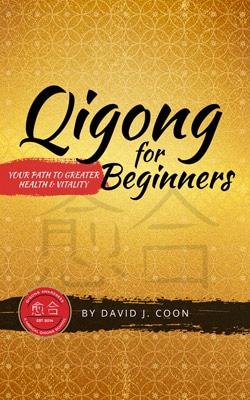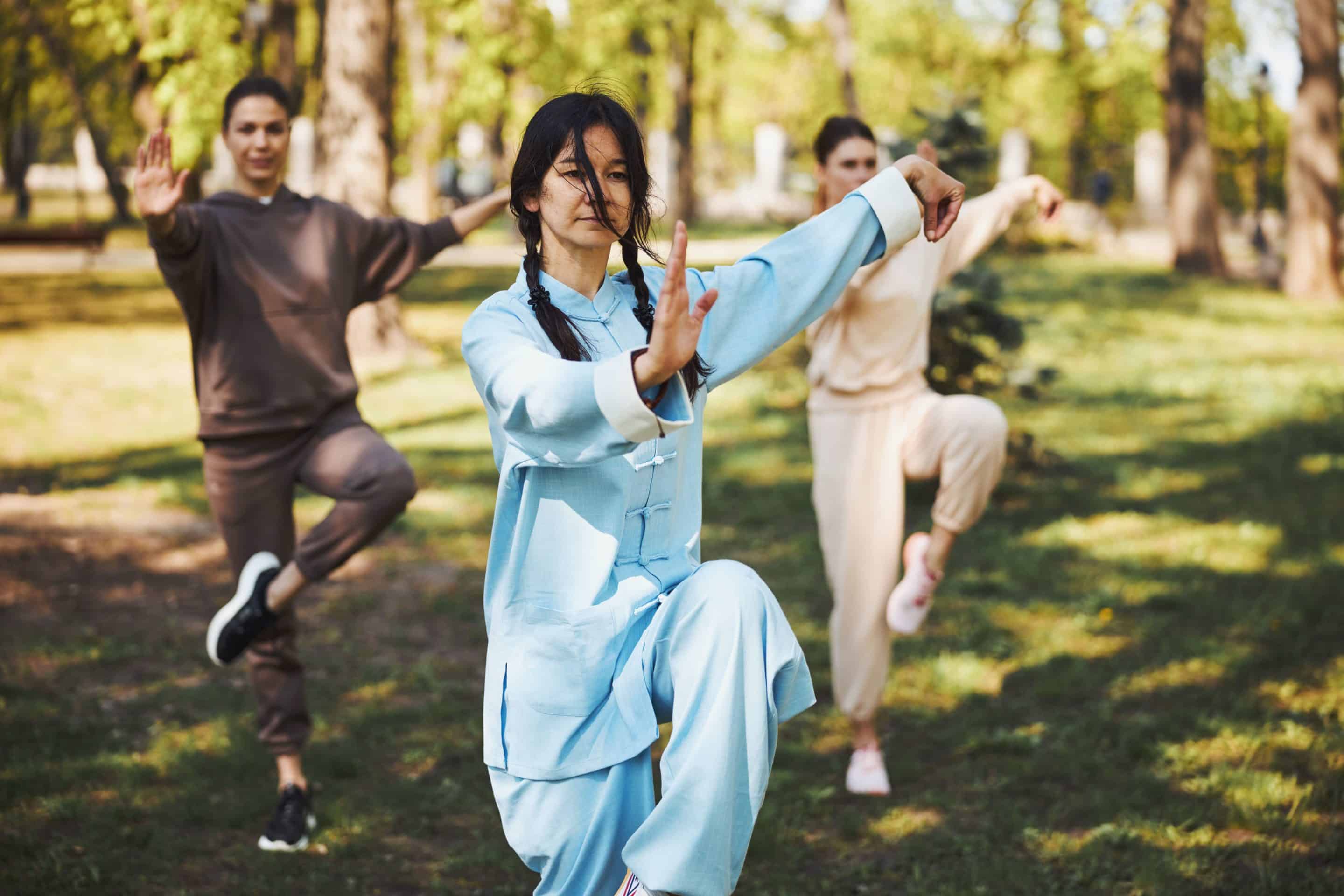In our other blog posts, we’ve talked about the health benefits of Qigong for healing pain and increasing your flexibility and mobility. On top of being great for your physical body, Qigong is excellent for your emotional self. The combination of physical movement, meditation, and mindfulness helps alleviate stress and circulates energy in positive ways so that you can focus your attention towards the things that matter to you in life. And the more energy we direct toward the things that matter, the more we can be our best selves—which puts us in a good mood. With steady practice, Qigong can boost your mood and improve your life, teaching you to channel your energy in ways that lead to positive outcomes.
Can Qigong improve your mood?
Absolutely. In general, Qigong is excellent for improving your mood. There are also specific exercises you can practice that target energy flows for lifting your spirits or for those days when you just are not feeling motivated. You can also view our YouTube video on Qigong Can Improve Your Mood. Even a seemingly simple exercise, like shaking out your hands, wrists, and joints, or patting down your leg muscles with the palms of your hands, can help relieve tension and open up space for relaxation. But any Qigong exercise boosts your mood overall because it helps your Qi to move—and everything else follows once your Qi gets flowing.
Is Qigong good for depression?
Qigong is very effective in alleviating depression. Depression is a state that causes us to feel down, unmotivated, or unable to respond to life’s demands—when we feel depressed, we are often helpless. From the perspective of Traditional Chinese Medicine, depression is also related to the stagnation of Qi. The energy inside your body has become stuck or consolidated. Our feelings of being unable to respond are a direct symptom of this sluggish energy. When we move our bodies mindfully, that energy is redirected; Qigong moves not just our bodies and minds but also our mood. The heaviness of depression becomes lighter, so we can allow for other types of energy to emerge.
Is Qigong good for anxiety?
Anxiety and depression are closely connected. As with depression, Qigong has several benefits for alleviating anxiety through the circulation of Qi. When you feel anxiety, you may experience nervousness, agitation, or stress, sometimes even the overwhelming sense of things being out of your control. This is a slightly different state than depression, but they go hand-in-hand. With depression, energy is turned inward, while with anxiety, energy is moving but with a strange vibration—and the two often build upon each other. While Qigong helps depression by recirculating energy that has become stuck, Qigong helps anxiety by converting agitated energy into positive energy. There is a lot of overlap between the two states. You can also read more about alleviating stress for mental clarity in this other blog post.
What happens to your body when you do Qigong?
Through Qigong mindfulness, the energy that was heavy and turned inward (like depression) or agitated (like anxiety) circulates throughout the body to produce energy that flows where and how we want it to go. This circulation is directly tied to mood; instead of letting things beyond our control dominate our moods, we are allowing our energy to relieve those tensions in our bodies, focusing on what we can control, which is our outlook. You might think about it like any other physical exercise—if you have stiff shoulders or muscles, stretching helps improve those aches and circulates blood flow, oxygenating the blood. Qigong has this same physical element, but it also works at the level of the Qi, producing desired effects on our moods.
Does Qigong give you energy?
In the everyday sense of the word, we could say Qigong gives you an energy boost. More precisely, though, Qigong does not create energy but is actually transforming energy we already have into another kind of energy. For example, when we experience an emotion, including depression or anxiety, this is already a sign of our energy being directed in certain ways and with certain patterns. Qigong takes that energy and changes it into a form with a positive rhythm. We might think about it in terms of physics: in physics, energy cannot be created or destroyed but is changed from one form to another. Qigong works in the same ways.
How do you feel after Qigong?
Practicing Qigong will improve your mood and aid your long-term well-being. However, it is also a process of healing, which can bring up different feelings for different people. Just like a massage, Qigong exercise works by releasing tension and moving toxins from various parts of your body to your blood. Since your body is in the process of getting rid of these toxins, it can be a bit bumpy at first. Some people may feel slightly nauseous or light-headed a few minutes after practice, while others may feel great immediately. This bumpiness can be alleviated quickly with proper instruction. For example, nausea can be relieved by slowing down the Qigong practice and having some water or a small bite to eat following your practice. Lightheadedness can be alleviated by simply taking a rest or time out from your practice or even switching to a seated practice.
If you are healing from pain, it can also take some time before you start feeling great. How Qigong makes you feel depends on several factors, from how you slept the night before to how achy your muscles are to what you ate for breakfast. Or you might be recovering from an injury or working through mental health issues. It depends on each individual and where they are at in their healing process.
Just remember that if you feel nauseous or if things feel too intense, it’s okay to take time to sit, relax, and breathe. With steady practice, Qigong will calm you in the long term and leave you feeling in a better mood to direct your energies where you want them to go.
Can you feel Qi?
This is a common question! Although some people may be able to feel Qi many people don’t even comprehend what Qi is, which is perfectly okay. More than feeling Qi, what is important is tuning into the ways your body and mind feel while you are practicing. For instance, what sensations do you notice in your body? Do you feel hot or cold? What is occurring with your breath? Do you feel pain? Where and what does it feel like? Being mindful of these states helps us get into the habit of an attentive Qigong practice that can improve our health in a foundational way.
David’s Video: “Qigong to Improve Your Mood”







